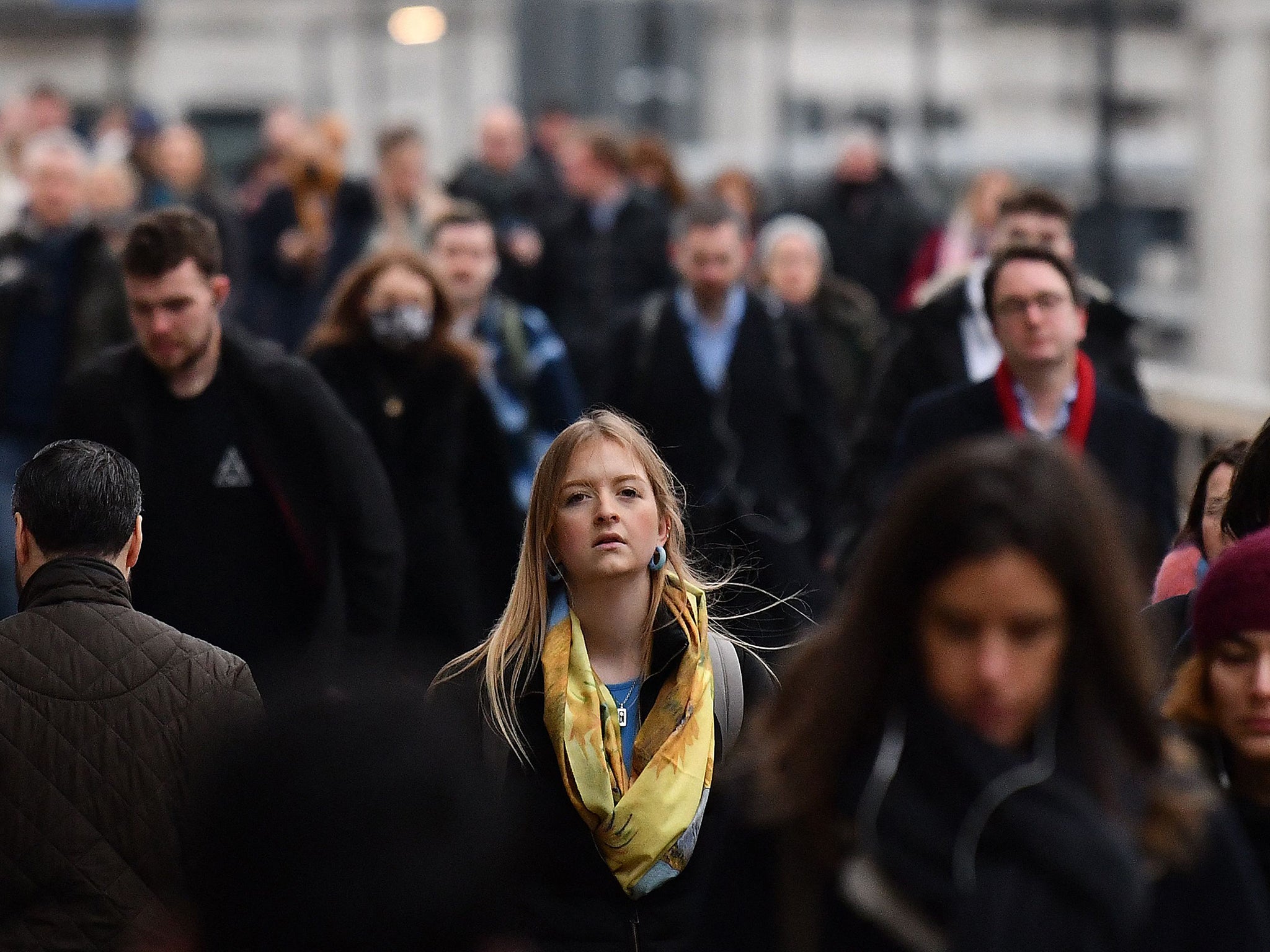Conservatives ‘lost decade of sluggish wage growth’ mean female workers losing out on up to £3,000 a year
Exclusive: ‘Tory economic mismanagement and the cost-of-living crisis have left working people paying the price,’ Labour’s deputy leader warns

Your support helps us to tell the story
From reproductive rights to climate change to Big Tech, The Independent is on the ground when the story is developing. Whether it's investigating the financials of Elon Musk's pro-Trump PAC or producing our latest documentary, 'The A Word', which shines a light on the American women fighting for reproductive rights, we know how important it is to parse out the facts from the messaging.
At such a critical moment in US history, we need reporters on the ground. Your donation allows us to keep sending journalists to speak to both sides of the story.
The Independent is trusted by Americans across the entire political spectrum. And unlike many other quality news outlets, we choose not to lock Americans out of our reporting and analysis with paywalls. We believe quality journalism should be available to everyone, paid for by those who can afford it.
Your support makes all the difference.The “lost decade of sluggish wage growth” created by the Conservatives means female workers are losing out on up to £3,000 a year, according to new research.
The study, shared exclusively with The Independent, found working women who are in their 30s have witnessed their real-terms wages plummet by £3,000 a year during the last 12 years of Tory rule.
Angela Rayner, Labour’s deputy leader, warned it was “shocking” how badly affected women had been by Conservative governance as she argued that their “economic mismanagement” had “left working people paying the price”.
A government spokesperson said that they were dedicated to “tackling the barriers that prevent women reaching their full potential”.
Labour’s research was revealed ahead of Equal Pay Day on Sunday – the day in the year when women effectively start to work for free in comparison to men because of lower pay.
Researchers noted that, now inflation was over 10 per cent, women aged between 18 and 21 were, in real terms, earning £40 a year less than in 2010, when the Tories first went into No 10.
Women aged between 30 and 39 were estimated to be more than £3,000 worse off, while those older than 60 were over £800 worse off.
Researchers estimated that female workers in their 40s would have to wait another quarter century for the gender pay gap to narrow so much it closed altogether.
Ms Rayner, also shadow secretary of state for the future of work, said: “It shouldn’t need saying, but everyone deserves a fair wage for a fair day’s work. Regardless of their background, working people should feel secure in their jobs and be able to build a good life.
“It’s frankly shocking how much women are suffering from the Tories’ lost decade of sluggish wage growth. Tory economic mismanagement and the cost of living crisis have left working people paying the price.
“The next Labour government’s New Deal for Working People will give everyone the tools to succeed at work.”
For women younger than 40, Labour said, the average pay gap had narrowed to 3.2 per cent or lower, but was substantially higher for women aged 40 and older, standing at 10.9 per cent.
The party has pledged to address workplace inequalities and discrimination as part of its New Deal. The scheme would force organisations with more than 250 employees to report their gender and ethnicity pay gaps, as well as provide action plans to address pay discrepancies. Outsourced workers would be included in this.
Among other promises, the deal would bolster maternity, paternity and shared parental leave, augment maternity rights, and deliver paid family and carer’s leave.
Joeli Brearley, founder and chief executive of Pregnant Then Screwed, a prominent campaign group, recently warned: “It’s the 21st century, yet 54,000 mothers are being pushed out of the workforce every year for simply daring to procreate.
“We have the second-most expensive childcare in the Organisation for Economic Cooperation and Development, the third-worst ranking maternity benefit and the worst-ranking paternity benefit in Europe.
“Data from the Office for National Statistics [ONS] shows that women of childbearing age are dropping from the workforce like flies.”
Labour’s research comes after the Fawcett Society, the UK’s leading gender-equality charity, which spearheads a national campaign about Equal Pay Day, recently said it was “deeply disappointing” the gender pay gap had scarcely narrowed in recent years.
The Fawcett Society, which analysed the latest data from the ONS, said the mean hourly gender pay gap for full-time workers was currently 11.3 per cent, while it was 11.9 per cent last year and 10.6 per cent in 2020.
A government spokesperson said that “the chancellor has announced targeted support worth £26 billion to protect from the worst of cost-of-living pressures” .
“We are pursuing a number of other initiatives to support women in the workplace,” they added. “This includes our groundbreaking pay transparency pilot, legislation to improve access to flexible working, and our new Enterprise Taskforce.
"We will continue to take data-driven action to ensure that women across the UK can reach their full potential."




Join our commenting forum
Join thought-provoking conversations, follow other Independent readers and see their replies
Comments